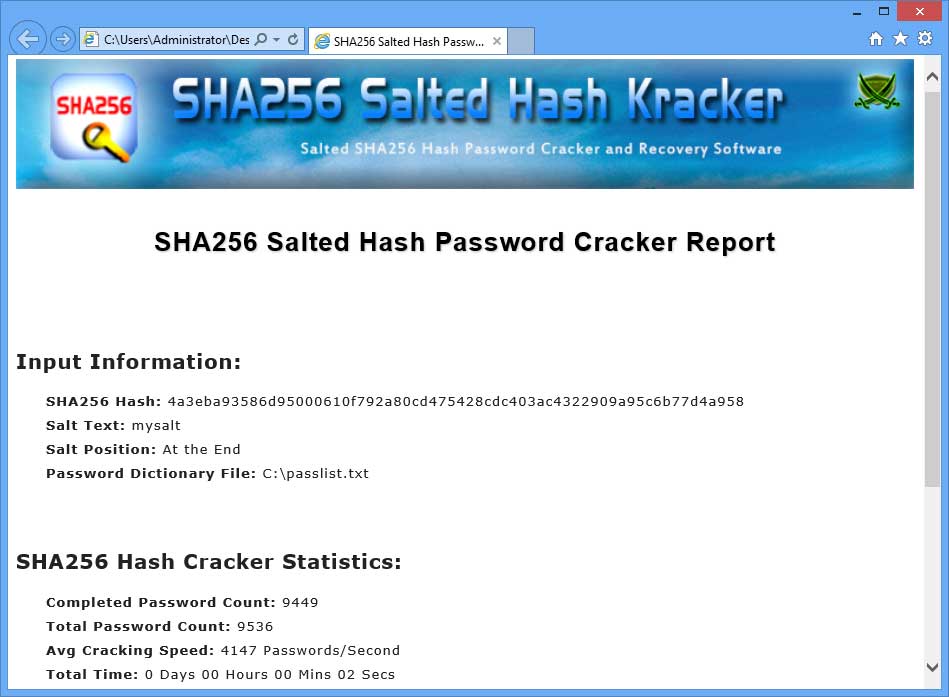Sha Hash Cracker
RainbowCrack Introduction. It differs from brute force hash crackers. A brute force hash cracker generate all possible plaintexts and. MD5 and SHA1 hash. Crackstation is the most effective hash cracking service. We crack: MD5, SHA1, SHA2, WPA, and much more.
I need to crack a sha256 hash, and I know the answer is in coordinates, but I don't know what are the coordinate values example: 3f1c756daec9ebced7ff403acb10430659c13b328c6dc315784e4e 58.375732 Is it possible to create a python script that makes two variables (both with the value 00.000000), then add them togheter (ex: k=i+' '+j), then converts k into sha256 and compares it to the sha256, I'm trying to crack. If it doesn't equal the sha256 being cracked, then it adds i a value ( i=i+00.000001) and triess again.
And so on and so on. If you're looking for ways to attack SHA256 that are better than brute force there are known preimaging attacks for creating collisions, but no published attacks (as of 2014) for reversing a hash. Describes them at a layman level. If you want to actually take advantage of them, you will need to learn more details. If someone has found a new attack recently, the chance that they will post it as an answer to your question rather than in the various public crypto forums seems pretty slim.
– Jan 19 '14 at 12:25. One of the common claims about hashes is that they discard information, therefore they cannot be reversed. There's infinite messages that have the same hash. You can't know which of the infinite messages that give the same hash is correct. Of course in practice, a brute force attack often works - either because your search strategy is likely to find the real original message first (most messages with hash collisions are obviously wrong in some trivial way - e.g.
The wrong format - and won't turn up in the search because of that) or because your attack needs a different message with the same hash anyway. In your case, what you know about the message means there's less information in the message than (apparently) in the hash. Of course hashing doesn't create new information, so that means many hashes cannot occur for any co-ordinate strings.

Cisco Hash Cracker
You have (with very high probability for good hash algorithms) a 1:1 relationship between possible hashes and possible messages. In principle, you have an encrypted form of your message which can be decrypted. Many people would call me an idiot for saying this, of course. After all, you still have to find all the hashes for all the possible messages. That may be faster than some people think, but it's a long way from trivial. It has already been pointed out that there are 10^16 possible combinations based on your co-ordinate format. One thing to check is whether all values for all those digits are possible (and equally probable).
Nt Hash Cracker


Using floating point arithmetic internally shouldn't be a problem - double precision floats aren't 8-digit decimals, but 53 bits of mantissa should be plenty to ensure all those decimal digits are fully in use. However, it may be worth checking that there's no other limitation that reduces the number of cases to check - the obvious one being the precision in how those co-ordinates are measured. Even if certain digit values are less probable than others, that means ordering the search to check more likely values first will save a lot of time for crackers.